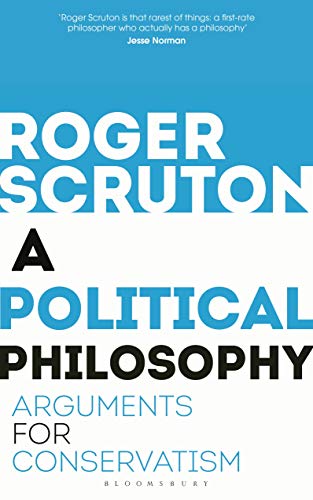In his most recent editorial, Michael Gerson highlights a new film that celebrates shifting “evangelical” attitudes concerning LGBT issues. Gerson contends that evangelicals should not be confused with fundamentalists and that evangelicals are in fact changing their views on sexuality to fit in with late modernity in the wake of the sexual revolution. It’s a little hard to tell what Michael Gerson intends in this editorial. Is this a thought experiment—a pensive response to a thought-provoking film? Or is this a celebration of those “evangelicals” who believe homosexuality and Christianity are compatible? I’m trying to be generous here, but it really does sound like the latter.
Among other things, Gerson writes:
Evangelicalism is not fundamentalism. It is a form of conservative Christianity determined to engage culture rather than escape it. And the influence goes in both directions. Secular music and films, scientific cosmology and modern conceptions of gender are powerful forces of modernity, transforming even those who try to resist.
Gerson is right that evangelicalism is not fundamentalism. But that is not going to prevent cultured despisers of religion from calling us that. Not least because evangelical “engagement” with culture has never been a carte blanche endorsement of the fads of secularism and of the sexual revolution. Far from it. Evangelicals have been offering a prophetic critique of both of those things from the very beginning. “Engagement” does not equal endorsement, especially when it comes to normalizing homosexuality and transgender identities. But you wouldn’t know that from Gerson’s depiction of evangelicals. He writes:
Many evangelical Christians have made their peace with a more equal role for women in society. Nearly every religious tradition admits that some of the cultural assumptions about gender held by the authors of sacred texts (say, the Apostle Paul’s instruction that women remain silent in church) are not normative. Many evangelicals also are not, hmmm, living in a manner consistent with New Testament views on divorce (where it is seldom justified). Divorced people generally sit in the pews of evangelical megachurches without stigma.
Now the question is raised: Is sexual identity a thing like gender roles and divorce — something on which a rough accommodation can be made?
This is a distorted depiction of evangelical attitudes about gender roles. No evangelical on either side of the gender debate argues that Paul’s teaching is “not normative.” Both sides agree that Paul is an apostle and that everything he writes in his thirteen New Testament letters is true. In recent decades, we’ve had a debate about the meaning of his words, but not so much about their authority to bind our consciences. Those who explicitly reject the normativity of Paul’s writings are not in any meaningful sense evangelical. To suggest otherwise is to misunderstand what it means to be an evangelical.
Having said that, egalitarian readings of scripture are often followed by compromises on the authority of scripture. This is a subtle, defacto result. It is not usually an explicit one. This happens because the hermeneutical strategy that affirms an egalitarian reading of Paul can very easily be used to support a pro-homosexual reading of the New Testament. This doesn’t happen in every individual’s case, but it does happen. In that way, egalitarianism can become a gateway to endorsing homosexual relationships. But that is not a sign of progress, but of regress away from scriptural norms. Whole books have been written by egalitarians to try to keep their people from making this leap, but I don’t think that dam will hold.
Gerson goes on to make an extraordinary claim about natural law. He writes:
This is the age of the gene, and there is serious evidence that sexual identify [sic] has a heritable component. According to Siddhartha Mukherjee in “The Gene: An Intimate History,” studies of twins have provided “incontrovertible evidence that genes influenced homosexuality .?.?. almost as strongly as genes influence height.”
A version of natural-law reasoning then follows: If same-sex attraction is not entirely a choice, is it appropriate to regard it as a sin? And if there is nothing morally wrong with having a gay orientation (as most Christians believe), is it fair or realistic to expect lifelong celibacy — a commitment that is historically viewed by Christians as a heroic, individual calling, not as a universal expectation?
This is an astonishing statement. I cannot tell from this statement that Gerson understands what the natural law is. The natural law is not that everything found in nature must therefore be good and right. That is absurd. Cancer and birth defects are heritable conditions found in nature, but none of us assume that cancer and birth defects are God’s original intention for his creation. No one celebrates their telos, as it were. They are both are evidences of how the Fall has distorted the world, not of how God made the world.
The natural law rests on the observation that God created his world good and that he made everything for a purpose. God created male and female and sex before there was sin in the world (Genesis 1-2). And God’s original intention for all three are revealed in nature, even though sin has distorted God’s creation. Gerson shows no knowledge of the difference between God’s original good creation and its distortion by sin and the curse (Romans 8:20-21).
There is no scientific consensus on what causes someone to have a homosexual orientation. A brief perusal of the DSM-5 will cure the mistaken notion that there is. There are a variety of theories and countless studies, but no consensus. Siddhartha Mukherjee is only highlighting one theory, but do not mistake that for consensus. Having said that, even if Siddhartha Mukherjee were correct about a genetic basis of homosexual orientation, that still would not overturn what Christianity teaches about sexuality. It would not be evidence of God’s intention for sexuality but for how deeply broken the human condition is. Again, Gerson seems to miss this entirely.
Gerson says that “most Christians believe” that “there is nothing morally wrong with having a gay orientation.” This too is a distortion of evangelical conviction. A gay orientation is defined by the APA as the enduring experience of sexual attraction to persons of the same sex. Even though the average evangelical cannot articulate this definition, neither do they believe that it is morally okay to feel sexual desires for persons of the same sex. They know what scripture says about the sinfulness of homosexual “desires” and “passions” (Romans 1:26-27). And they are not willing to deny scripture to excuse such sinful desires simply because the desires feel “natural.”
I do not think that Gerson has given us a faithful accounting of evangelical conviction. On the contrary, he seems to suggest that “engagement” with the world involves abandoning what the Bible teaches about sexuality. But this is where he couldn’t be more mistaken. To depart from God’s revelation on this point is to depart from Christianity altogether (1 Cor. 6:9-11). And that is what Gerson seems to miss.



